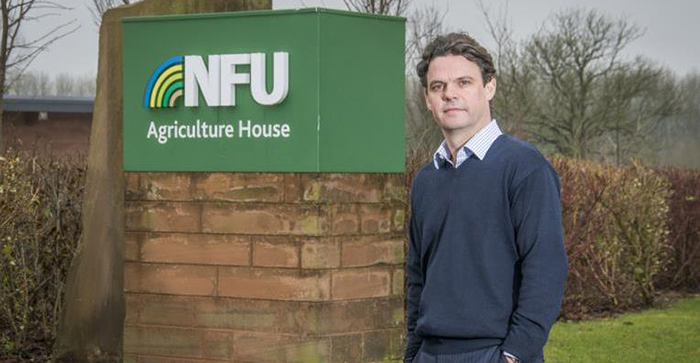The NFU has outlined the potential implications of Brexit on British farming at an event held at Bishop Burton College in Yorkshire last week.
NFU director of EU exit and international trade Nick von Westenholz spoke at the event where he discussed how the Agriculture Bill can be improved to make it fully fit for purpose. He said that while the Bill has many positive aspects such as financial assistance for productivity improvements, provisions for fairer supply chains and market intervention measures, there needs to be a much higher focus on food production.
Speaking after the event, Mr von Westenholz said: “It’s so important that we keep up the pressure on Government to make the necessary amendments to the Agriculture Bill as it works its way through Parliament.
“First and foremost, we need an ‘agricultural’ Agriculture Bill. It must recognise that food security is a public good and that sufficient financial assistance is needed to enable farmers to continue producing safe, traceable and affordable food for the nation. And support payments, whether for environmental goods, productivity improvements or to assist with stability in the sector, must be targeted at farmers and farmland, so that the opportunity to create a sustainable post-Brexit British farming system is not missed.
“What we want from government is to see evidence of long-term commitment to the food and farming sector. Food production and the environment go hand in hand, and for farmers to be able to deliver both the NFU is working with government and MPs to strengthen the Bill as it makes its way through Parliament.”
Mr von Westenholz also warned of the risks of a ‘no deal’ Brexit.
He said: “It’s difficult to envisage what sort of deal could be worse than no deal for farming. Politicians on both sides of the channel must work together, as a matter of urgency, to reach an agreement on the terms of Brexit and our future relationship with the EU. Every day of delay increases uncertainty, damages our sector and draws vital resources away from the important business of producing food.”


